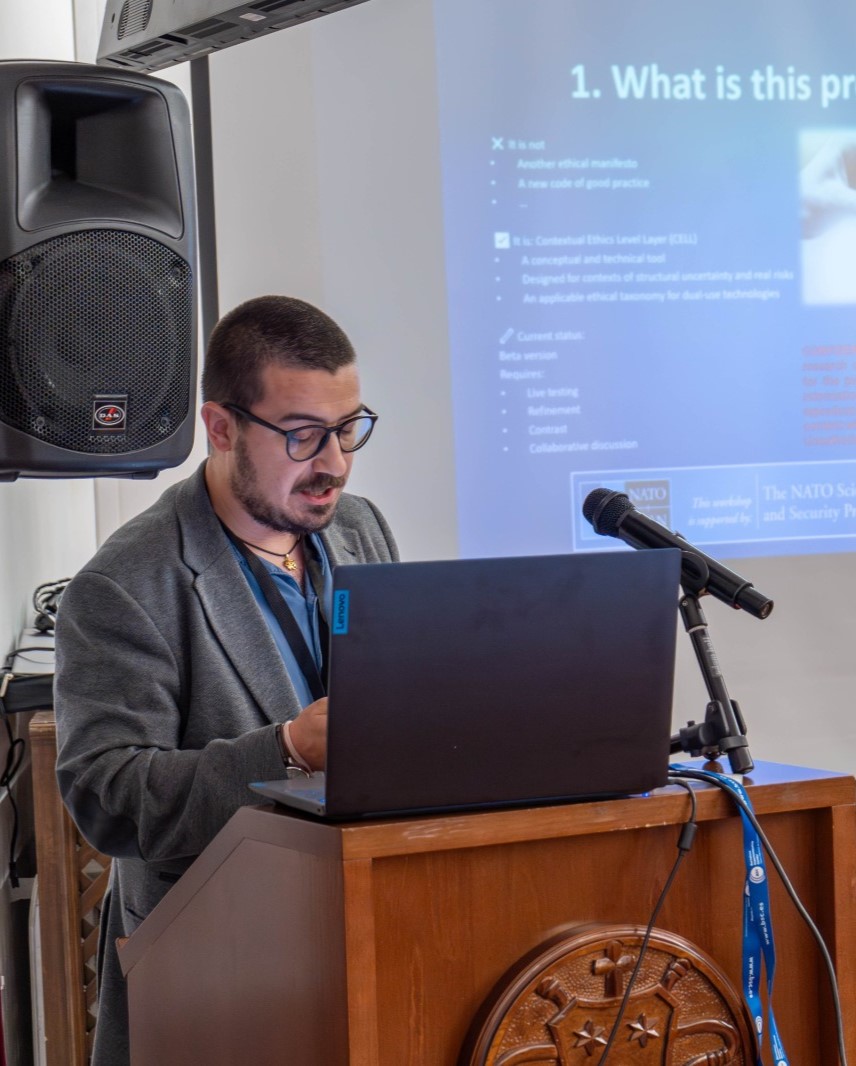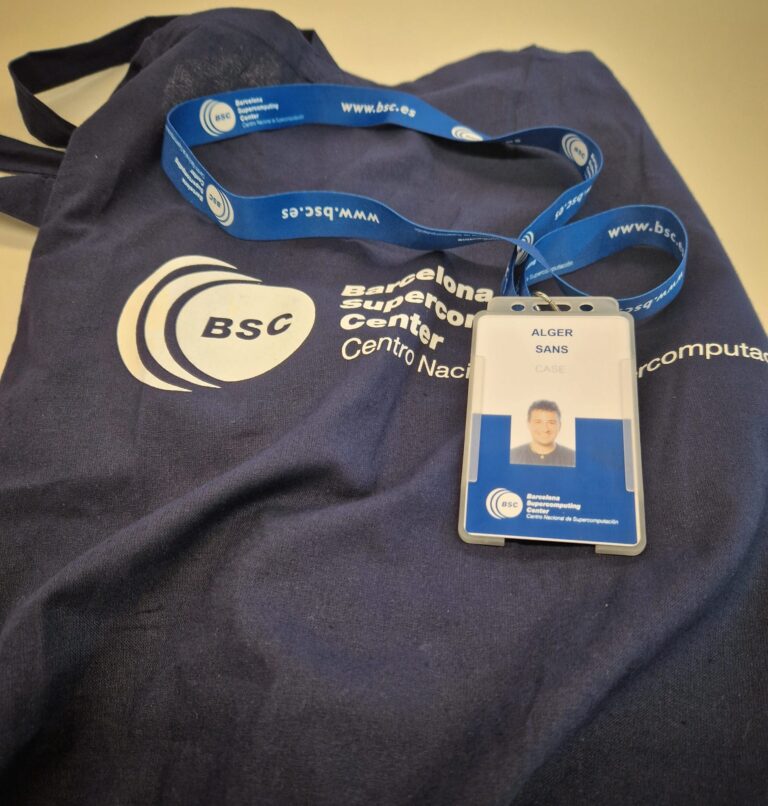Argumentum in Absentia

Dpt. of Computer Applications in Science and Engineering (CASE)
Barcelona Supercomputing Center - Centro Nacional de Supercomputación (BSC-CNS) Plaça Eusebi Güell, 1-3 08034 Barcelona (Spain)
ORCID: 0000-0002-8817-7286
SCOPUS ID: 57222557221
Spotlight
24/10/2025 – We are pleased to announce the forthcoming publication of the article Integrating Digital Museums Within Traditional Ones to Address Epistemic Injustice in Cultural Heritage in Revista Guillermo De Ockham.
The paper explores how digital museums can help mitigate epistemic injustice in traditional cultural institutions, particularly regarding the exclusion of marginalized groups. The authors propose the concept of the deliberative museum—a participatory digital space integrated within traditional museums, where curatorial decisions are open to public negotiation and minority voices are actively included.
This theoretical model invites a rethinking of visibility, representation, and inclusion in cultural heritage, highlighting the transformative potential of digital tools in fostering epistemic justice.
19/10/2025 – We are pleased to announce the publication of SecondDeath. Experiences of Death Across Technologies, a groundbreaking volume that examines how death is being redefined through robotics, artificial intelligence, and the digital condition.
Edited by Alger Sans Pinillos, Jordi Vallverdú (Universitat Autònoma de Barcelona), and Vicent Costa (IIIA-CSIC), with the support of the CASE Department at the Barcelona Supercomputing Center, the book brings together leading international scholars in a unique interdisciplinary dialogue.
The volume concludes with visionary interviews with Neil Harbisson and Kevin Warwick, offering provocative insights into the future of life and death in technological contexts.
15/09/2025 – Together with Joan Farnós Baulenas (Barcelona Supercomputing Center) and Vicent Costa (IIIA-CSIC), I’ve (CASE Department) co-authored an article in Frontiers in Artificial Intelligence: “Ethical prompting: toward strategies for rapid and inclusive assistance in dual-use AI systems.”
We examine how assistive technologies designed for people with disabilities can migrate almost unchanged into military and emergency contexts. The focus of our work: how prompting strategies (the way inputs, alerts, and data flows are structured) become decisive in preventing deployment bias and ensuring these systems remain inclusive and reliable.
Key message: Ethical prompting is not a cosmetic feature: it’s a structural safeguard that shapes how dual-use systems behave across civilian and defense environments.
19/08/2025 – The Essays in Honor of Lorenzo Magnani, edited by Selene Arfini (Università degli Studi di Pavia) and published by Synthese (Springer), has just been released.
I had the pleasure and honor of contributing a chapter to the second of the two volumes.
These volumes not only compile the work of a great professor and academic but also reflect the character of someone deeply committed to philosophy and to the academic community.
My chapter, in honor of someone I consider both a mentor and a friend, is titled: “Horror Vacui: Characterizing the Experience of Paradigm Crisis Through Magnani’s EC-Model of Abduction.”
20-21/05/2025 – I attended the 2025 General Counsel Roundtable titled “AI Governance and Law: Impacts on Critical Defence and Security Areas”, held at NATO Headquarters in Brussels.
This was an excellent opportunity to engage with emerging legal and ethical challenges in defence and security, with a special focus on dual-use technologies. These are precisely the issues we continue to address within the Dual-Use Technologies Group at the CASE Department of the Barcelona Supercomputing Center.
08-09/05/2025 – It was an honour to participate in the international interdisciplinary Advanced Research Workshop titled “Clicking the Pause: The role of Transatlantic cooperation in AI Supervision”, organized by the NATO Science for Peace and Security Programme, the University of Salamanca, and the Universidad de La Sabana.
I am sincerely grateful for the invitation, the warm welcome, and the opportunity to contribute to such an important discussion. I return with more questions than answers, which is, for a philosopher, a true gift.
The ethical challenges surrounding emerging and disruptive technologies, particularly artificial intelligence, are more urgent than ever. I will continue exploring these critical issues with the Dual-Use Technologies Group at the CASE Department of the Barcelona Supercomputing Center.
14/03/2025 – The first internal workshop of the Palgait Project took place at the Barcelona Supercomputing Center (CASE Department), and I was delighted to take part in this exciting initiative.
During the session, I had the opportunity to contribute to discussions on VUCA (Volatility, Uncertainty, Complexity, Ambiguity) environments, simulation, and ethical analysis in the context of generative AI. The day was intellectually rich and energizing, thanks to the exchange of ideas with an exceptional group of researchers and colleagues.
Among the participants were Lorenzo Magnani (Università di Pavia), David Casacuberta and Anna Estany (Universitat Autònoma de Barcelona), Mario Gensollen (Universidad Autónoma de Aguascalientes), Vicent Costa (IIIA-CSIC), and Rafal Rzepka (Hokkaido University).
A special thanks to Jordi Vallverdú (ICREA-UAB) for organizing such a meaningful event and for creating the space to explore these urgent and fascinating challenges.
The Project
I am currently working as a Researcher in Digital Ethics for Dual-Use Technologies at the Barcelona Supercomputing Center (BSC), with a specific focus on the defense sector. My project aims to develop solid and applicable ethical criteria to guide the development and integration of emerging technologies such as artificial intelligence, autonomous systems, and advanced computing in strategic and security-related contexts.
In an environment where the boundaries between civilian and military technologies are increasingly blurred and innovation often outpaces regulation, my work seeks to provide practical ethical tools to anticipate risks, support decision-making, and ensure that technological progress respects fundamental rights.
This project responds to a growing need in the defense field: integrating ethical considerations not as an external constraint but as a core element of the design, development, and deployment of technology. The goal is to support informed and responsible decisions, particularly in complex situations where information is limited but consequences are significant.
My approach combines philosophical insight with technical understanding to contribute to a model of defense that is innovative, effective, and aligned with democratic and humanitarian values.

Upcoming Works
Upcoming Works

– Sans Pinillos, A., Farnós, J., Vallverdú, J. (2025). Dual-Use Technologies in a VUCA World: Ethical Abduction and Wargames as Responses to Radical Ignorance in Scientific Development. Lato Sensu: Revue De La Société De Philosophie Des Sciences.
– Guersenzvaig, A., Sans Pinillos, A. (2025). Beyond codes of ethics and dos and don’ts: regulative ideals as ethical scaffolding for design. In F. Secomandi and Verbeek, P-P (eds.), Design philosophy after the technology turn. Bloomsbury
* All the publications in this section are accepted texts that will come out soon. For this reason, not all the data are available yet.
The Method
My methodology is guided by the search for coherence between fascination, intuition and knowledge. These three dimensions shape not only what I research, but how I approach each problem. Unlike more conventional views that place knowledge at the center of research, I understand it as a regulative horizon, a necessary reference point that supports but does not constrain intuition.
By intuition, I refer to the preliminary and often imprecise sense I have of the structure and possibilities of a problem. This perspective allows me to perceive connections that are not immediately evident and to preserve elements that may initially seem out of place yet hold potential significance. Intuition helps me keep the field open without dissolving rigor.
Fascination is the driving force behind my research. It directs my attention toward questions that resonate deeply with me and allows me to explore their implications across domains, from epistemology to digital ethics. At times, this fascination becomes intense, which is why it must be balanced through dialogue with intuition and refined by knowledge, particularly by engaging with the current state of the field.
This personal triad —fascination, intuition and knowledge— sustains my commitment to research. It enables me not only to interpret what surrounds us, but also to imagine and ethically shape alternative futures. This balance is especially important in the context of dual-use technologies and defense, where uncertainty and moral responsibility are deeply intertwined.
